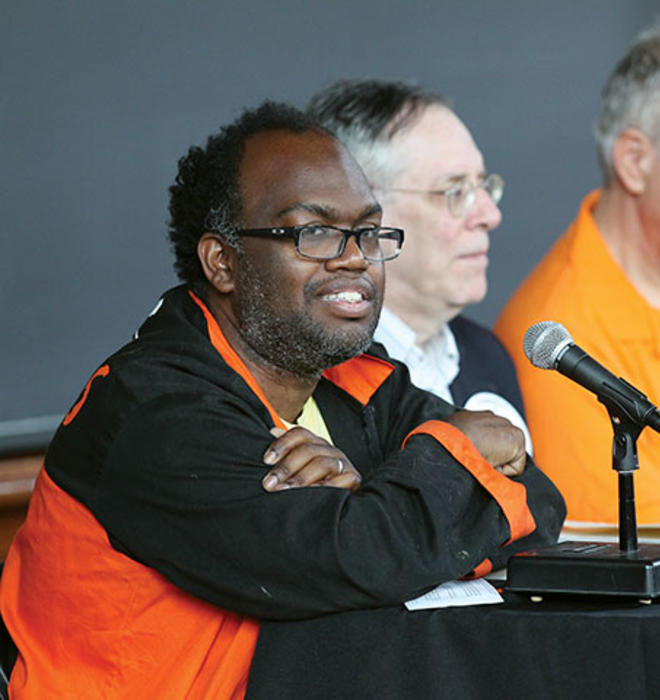
Reunions Panel: Immigration
With illegal immigration playing a central role in the American political arena, the policy differences evident in national discussions divided a panel of Princeton alumni as well.
Militarization of the border with Mexico — which often is proposed to combat illegal immigration — actually has increased the number of undocumented immigrants in recent decades, said sociology professor Douglas S. Massey *78. “By doubling down on border enforcement, it reduced the outflow [of Mexicans] to Mexico,” Massey said, and net immigration increased. This trend ended as Mexico’s demographics changed, he said, though 11 million unauthorized immigrants without status remain in the United States, many of whom have children with U.S. citizenship.
Ken Buck ’81, a Republican congressman from Colorado, said that illegal immigrants overburden public services like health care and education. Buck said that in his hometown of Windsor, 25 percent of the students in a K-5 school district are Spanish-speaking, which “requires the school to put enormous resources into teaching those students English and basic skills” and increases the tax burden on residents.
But Dan-el Padilla Peralta ’06 — an undocumented immigrant when he became class salutatorian — responded that many undocumented immigrants pay taxes and contribute to social-benefit systems. “To develop and sustain a discourse that insists on the harm and drain wrought by the undocumented is at best one-dimensional,” he said. He will be an assistant professor at Princeton beginning this summer.
Massey and panelist Richard Sobel ’71, a visiting scholar at the Buffett Institute at Northwestern University, stressed the significance of America’s growing and changing population. “As you watch the P-rade, watch the future demography of the United States,” Massey said. “That is the future of the United States.”






No responses yet